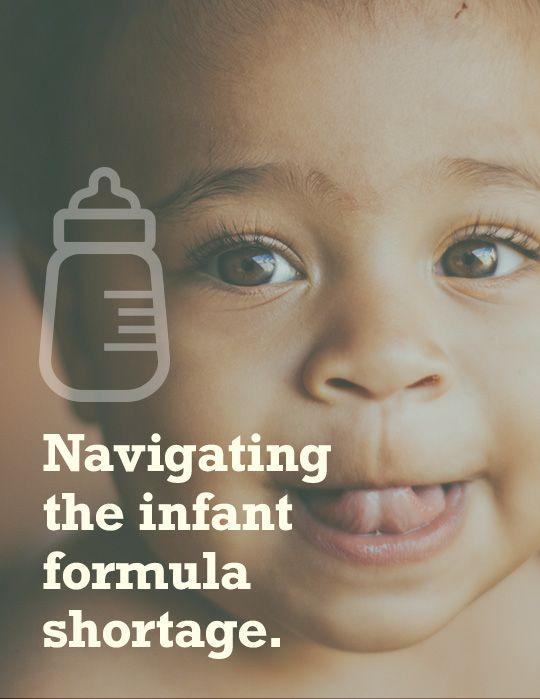Dads
You’re a Great Dad!
Being a dad can be one of the most rewarding and impactful roles you take on. You are the guiding force in your child’s life. Let’s help you stay healthy to be there for your family!
How to support the people who love you and look up to you.
As a dad, it’s vital to protect your children. What makes a good dad? Many fathers say being a good one takes your body, mind, and soul. Striving to be the best, supportive dad can help you establish a healthy relationship with your child and significant other. Way to man up!
Looking for tips on how to be a good dad? We can help:

How you treat your child’s mother affects kids’ self-esteem.
Be a cheerleader for your significant other and prioritize their needs.
How to support your child’s mother.
When you and your child’s mom are both on the same page, everybody wins. How you treat their mother affects kids’ self-esteem. Be a cheerleader for your significant other and prioritize their needs. This sets a good example for children and promotes a healthy relationship. Encourage your child’s mom to keep up with doctor visits. You can also help them recover and be aware of any health concerns they may have.
As a dad, you may feel left out if your partner breastfeeds your new baby. But you play an important role. Breastfeeding is recommended as the best nutrition for your baby. Besides the nutritional and natural immunity benefits breastfeeding offers, another benefit is it’s free! Breastfeeding can be challenging for many mothers. There are many organizations that can help if your partner is having trouble with breastfeeding.
Need help to support your partner breastfeeding?
- Join them for a breastfeeding class.
- Learn the breastfeeding basics. At first, your baby eats about every two to three hours. In between those feedings, make sure you get some skin-to-skin togetherness, too. This can help you bond with baby.
- Offer encouragement and kind words. Tell your partner you’re proud of them. Pick up their favorite meal, and limit visitors so that they can rest and focus on breastfeeding.
See more breastfeeding tips on WIC.
Don’t forget to take care of yourself.
Taking care of yourself is the first step to helping you to live a longer life. Here are a few lifestyle topics to consider for improving your health.
Don’t smoke.
If you do smoke or use other tobacco products, ask your doctor to help you quit. Visit Delaware Tobacco Prevention and Control Program.
Eat a healthy diet.
Choose fruits, vegetables, whole grains, and lean sources of protein, such as fish and chicken. Limit foods high in trans fats and added sugar or sodium, like fast food.
Get moving.
Exercise can help you lower your risk of heart disease and stroke. It can also help improve your mood and be a great way to deal with stress. So aim to get 30 minutes of moderate-intensity exercise a day, for five days a week.
Limit alcohol.
If you choose to drink, do it in moderation. That means up to two drinks a day. Too much alcohol can increase your risk of high blood pressure, heart attack, stroke, and possibly cancer.
Don’t misuse drugs.
Did you know some vitamins and drugs can’t be taken together or can cause harm? Do not stop taking medications before talking to your provider. If you or someone you care about is struggling with addiction, you are not alone. Help is available to you regardless of insurance, from specially trained substance use disorder providers you can trust.
Manage stress.
Chronic stress can affect your overall health negatively, so finding ways to cope with stress is key to a healthy lifestyle. Exercise, meditation, engaging in a hobby and making time to talk through your issues are great ways to manage stress.
Visit your health care provider.
Get your annual health check-up. See your health care provider any time you are concerned or have symptoms you want checked out. Your health care provider can be your best ally for health education and disease prevention. Ask your provider about preventive care such as cancer screenings, vaccinations, and other health evaluations. It’s also important to know your health history. Your family’s health history may reveal your risk for developing certain diseases in the future. Your provider can also help you get checked for STDs annually or when you have a new partner.
Use condoms.
Children are a lot of work. If you don’t want more kids, use protection when you have sex. Need condoms? You can get them for free. Check out where you can find free condoms.
Taking care of your child
Everything’s different now that you’re a dad. Life is busier. To help you adjust to your new life, learn the right way to support your baby’s health and help support their mom. Feeding, safe sleep, well visits, and more — babies need a lot and so do their moms. It’s important that you both support each other during this time of great change.
Need more tips on taking care of your little one?
Visit our Your Growing Child page for more tips and tricks for parenting. You can also reach out to Community Health Workers (CHWs). CHWs serve as a connection between health/social services and the community to simplify access to services and improve service delivery. CHWs aim to build individual and community capacity to improve health outcomes through a variety of activities such as outreach, health education, informal counseling, social support, linkages and referrals to health care, as well as community resources such as financial coaching or housing.
Need Assistance?
If you’re like most dads, you sometimes wonder if your child’s early development is on track. You don’t have to wonder anymore. Help Me Grow at Delaware 2-1-1 is a free one-stop call center to answer your questions or get the help you need for your child. You may also text your ZIP code to 898211.
Breaking Down Barriers
Now is the time for everyone to make the choices to stay healthy, but not everyone has the same opportunity to do that.


